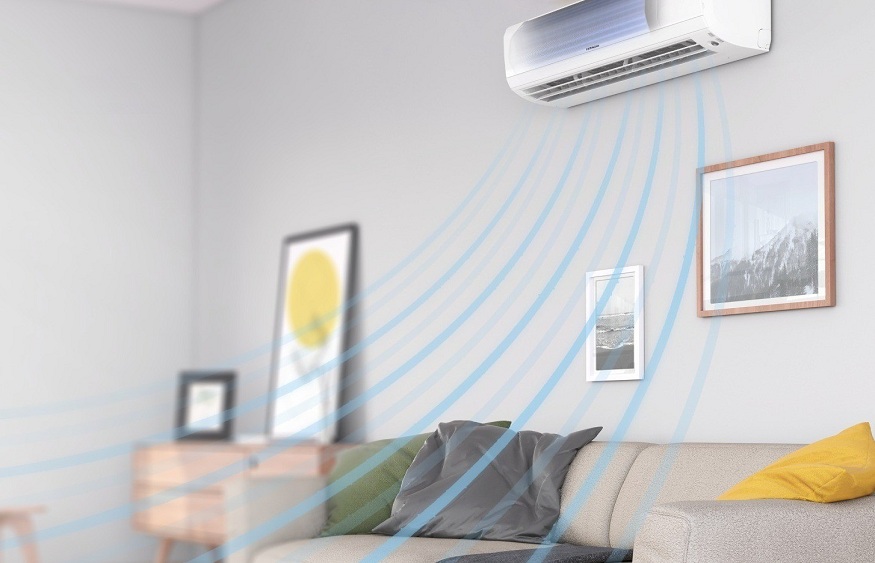As homeowners embark on home improvement projects, it’s essential to ensure the proper care and maintenance of their air conditioning systems. A well-maintained air conditioning system not only provides optimal comfort but also helps improve indoor air quality and energy efficiency.
In this guide, we will explore what air conditioning is, how it works, the benefits it offers, and share valuable tips for maintaining your air conditioning system during home renovations. We will also discuss how you can reduce air conditioning costs by using solar panels and solar battery storage to power your system during evening hours.
What is Air Conditioning?
Air conditioning is a technology that provides a controlled indoor environment, maintaining a comfortable temperature and humidity level. It involves the process of cooling or heating the air within an enclosed space, such as a home, office, or commercial building, to create a pleasant and conducive atmosphere for occupants.
How Does Air Conditioning Work?
Air conditioning systems work by removing heat from the indoor air and releasing it outside. The primary components of an air conditioning system include the compressor, condenser, expansion valve, and evaporator coil. Here’s a simplified breakdown of how air conditioning works:
The compressor, compresses refrigerant gas, increasing its temperature and pressure.
The hot, pressurized refrigerant gas flows to the condenser coil located outside the building. As it meets the outdoor air, it releases heat, causing the refrigerant to condense into a high-pressure liquid. The high-pressure liquid refrigerant passes through an expansion valve, where its pressure drops, causing it to evaporate and turn into a low-pressure gas.
The evaporating refrigerant absorbs heat from the indoor air, cooling it in the process. The cool air is then circulated back into the room through the evaporator coil. The process repeats until the desired indoor temperature is achieved.
The Benefits of Air Conditioning
Air conditioning offers numerous benefits that contribute to a comfortable and healthy indoor environment:
Temperature Control: Air conditioning systems allow homeowners to maintain a consistent and comfortable temperature, regardless of the weather conditions outside. This is especially important during hot summer months or in regions with high humidity levels.
Improved Indoor Air Quality: Air conditioning systems filter and circulate the air, removing pollutants, dust, allergens, and other contaminants. This can help improve indoor air quality, particularly for individuals with respiratory conditions or allergies.
Reduced Humidity: Air conditioning systems dehumidify the air, reducing excess moisture and preventing the growth of mold and mildew. Lower humidity levels contribute to a more comfortable living environment and protect against damage to furniture and belongings.
Increased Energy Efficiency: Modern air conditioning systems are designed to be energy-efficient, using advanced technologies to cool or heat spaces with minimal energy consumption. This can lead to reduced energy costs and a smaller environmental footprint.
Tips for Maintaining Your Air Conditioning System During Home Improvements
Protect the System during Construction: When planning home improvements, take precautions to protect your air conditioning system from dust, debris, and construction materials. Cover the outdoor unit with a tarp or plastic sheeting to prevent damage and keep the area around the unit clear.
Change Air Filters Regularly: Clean air filters ensure optimal airflow and prevent dust and debris from accumulating in the system. During home renovations, check and change air filters more frequently to remove any additional particles generated by construction activities.
Schedule Professional Maintenance: Regular professional maintenance is crucial to keep your air conditioning system in top condition. Before and after home improvements, consider scheduling a maintenance visit to inspect the system, clean the components, and address any potential issues.
Clean Air Vents and Registers: Dust and debris can accumulate on air vents and registers during home renovations. Clean them periodically to ensure unrestricted airflow and maintain optimal performance.
Monitor Indoor Humidity: During renovations, increased moisture levels from painting, plastering, or other activities can affect indoor humidity. Use a dehumidifier, if necessary, to maintain the recommended humidity level and prevent excess moisture from impacting the air conditioning system.
Keep Outdoor Unit Clear: Regularly check the outdoor unit for any debris or vegetation that may obstruct airflow. Trim plants and shrubs around the unit to ensure proper ventilation.
Utilize Solar Panels and Solar Battery Storage: Reduce your air conditioning costs by harnessing the power of solar energy. Install solar panels on your property to generate clean electricity from the sun. Pair your solar panels with a solar battery storage system to store excess energy during the day and use it to power your air conditioning system during evening hours.
By following these maintenance tips, you can ensure the longevity and efficiency of your air conditioning system while undergoing home renovations. Taking proactive measures to care for your system will help maintain a comfortable indoor environment and maximize energy savings.
Incorporating solar panels and solar battery storage into your air conditioning system provides additional cost-saving benefits, as you can utilize clean, renewable energy to power your system during evening hours when energy demand is typically high. By reducing reliance on grid electricity, you can lower your carbon footprint and contribute to a greener, more sustainable future.
Remember, a well-maintained air conditioning system not only enhances comfort and energy efficiency in your home but also helps create a healthy and enjoyable living environment for you and your family.

